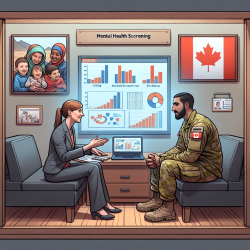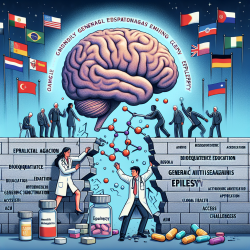Introduction
Parent-Child Interaction Therapy (PCIT) has long been recognized as a robust evidence-based treatment for young children and their families. However, its traditional framework lacks a standardized approach to directly address trauma, which is a significant concern given the prevalence of trauma in many families seeking therapy. The research article "Trauma-Directed Interaction (TDI): An Adaptation to Parent-Child Interaction Therapy for Families with a History of Trauma" provides valuable insights into addressing this gap by integrating trauma-focused elements into PCIT.
Understanding Trauma-Directed Interaction (TDI)
Trauma-Directed Interaction (TDI) is an adaptation of PCIT designed to incorporate trauma-informed components into the therapy process. This adaptation maintains the core elements of PCIT while introducing sessions that focus on psychoeducation about trauma, carer responses to trauma reactions (SAFE skills), and coping strategies for both the child and the carer (COPE skills).
Key Components of TDI
- Psychoeducation: Educates carers about the impact of trauma on child development and behavior, helping them understand the significance of trauma activators and how these may manifest in their child's actions.
- SAFE Skills: Carers are taught to use specific skills to address trauma activators, including stating the feeling, addressing safety, finding a COPE skill, and engaging in PRIDE skills.
- COPE Skills: Introduces coping mechanisms for both children and carers, such as color breathing, opening up to feelings, engaging in positive actions, and expressing oneself.
Implementing TDI in Practice
For practitioners looking to enhance their trauma-informed care, integrating TDI into their PCIT practice can be transformative. By doing so, therapists can provide a more holistic approach that addresses both the child's and the carer's trauma, leading to improved therapeutic outcomes. The TDI module offers a structured framework that ensures consistency and fidelity to trauma-informed principles, allowing for better research and replication opportunities.
Encouraging Further Research
While TDI provides a promising adaptation to PCIT, ongoing research is essential to evaluate its effectiveness across diverse populations. Practitioners are encouraged to contribute to this growing body of knowledge by documenting outcomes and sharing insights with the broader therapeutic community. By doing so, they can help refine and enhance the TDI model, ensuring it meets the needs of families with complex trauma histories.
Conclusion
Trauma-Directed Interaction (TDI) represents a significant advancement in the field of trauma-informed therapy. By integrating TDI into PCIT, practitioners can offer more comprehensive care that addresses the unique challenges faced by families with a history of trauma. This adaptation not only benefits individual families but also contributes to the broader understanding of effective trauma treatment.
To read the original research paper, please follow this link: Trauma-Directed Interaction (TDI): An Adaptation to Parent-Child Interaction Therapy for Families with a History of Trauma.










